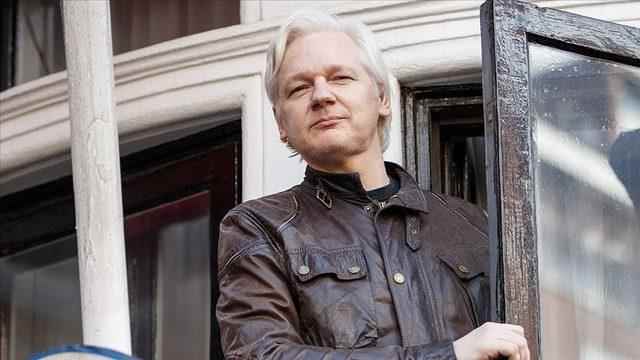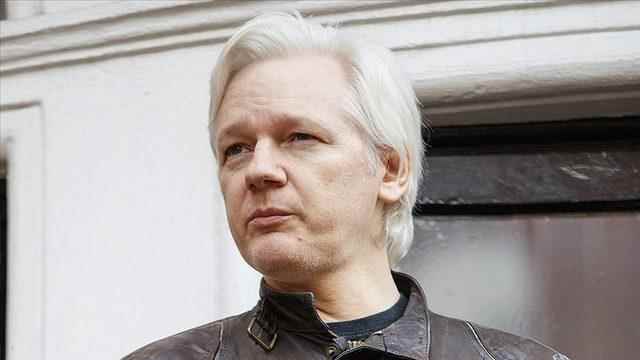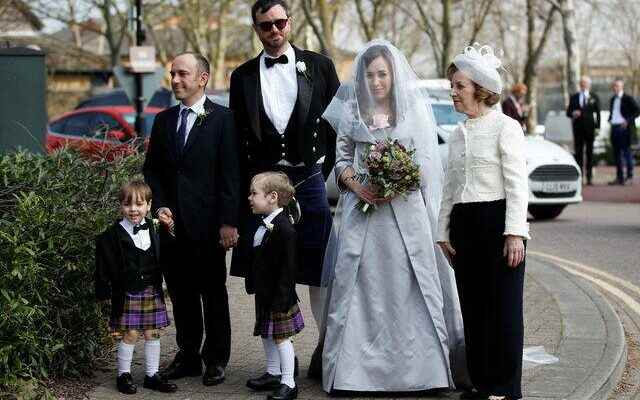WikiLeaks founder Julian Assange married his fiancee and mother of two children, Stella Moris, at the Belmarsh Prison in London, where he was imprisoned.
4 PEOPLE ATTENDED THE WEDDING
Four people, two of them official witnesses and two of them guards, were allowed to attend the wedding ceremony, which was held while Assange was being held in the maximum security prison outside of London.
Moris, who came to the prison in her wedding dress, said that although the conditions were very restrictive, she was excited and Assange was looking forward to the wedding.
The veil of Moris’ wedding dress, designed by Vivienne Westwood, was seen embroidered with messages written “brave, wild, relentless”.
His supporters, who gathered outside the prison for the celebration and demanded Assange’s release, also carried banners that read “Freedom for Assange”, “Congratulations Mr and Mrs Assange” and “God bless you”.
It is known that Assange and Moris have two children, aged 2 and 4, who were born during the time that Assange took refuge in Ecuador’s London Embassy.

ASSANGE’S CASE PROCESS
WikiLeaks, founded by Assange, released many classified documents in 2010, among which evidence the crimes committed by the USA in Iraq and Afghanistan.
Assange, whom the USA accused of espionage and wanted his extradition, sought refuge in Ecuador’s London Embassy in June 2012, while his extradition to Sweden was on the agenda for the lawsuits filed against him on charges of rape and sexual harassment.

Assange was detained from the Ecuadorian Embassy in London on April 11, 2019, and arrested for “violating the conditions of release on bail” and placed in Belmarsh Prison in London.
The court sentenced Assange to 50 weeks in prison for this crime. It was decided that Assange, who had served his 50-week sentence, would remain in detention within the framework of his extradition request.
RETURN REQUEST TO THE USA WAS DENIED
After the hearings, on January 4, 2021, the US extradition request was rejected on the grounds that Assange was at high risk of suicide and would be subject to special administrative measures in a US prison, especially because he was “at real risk” because the intelligence community was hostile to him. The United States objected to the decision.

To win the appeal, the United States had pledged that the WikiLeaks founder would not be held in maximum security prisons and could serve his sentence in his home country of Australia.
The defense team, on the other hand, emphasized the safety of life, citing the news that the CIA planned to kidnap and kill Assange while he was hiding in Ecuador’s London Embassy.
On December 10, 2021, the Supreme Court found the guarantees to be sufficient and overturned the lower court’s decision and ruled that Assange could be extradited to the United States.

Thereupon, Assange’s defense team applied to the Supreme Court for permission to move the case to the Supreme Court. The Supreme Court, with its decision on March 14, rejected the objection to the decision that Assange could be extradited to the United States.
Following the said decision, it was stated that the case file would go directly before the Minister of the Interior, Priti Patel, for the final decision on whether Assange could be extradited to the United States. (AA)
